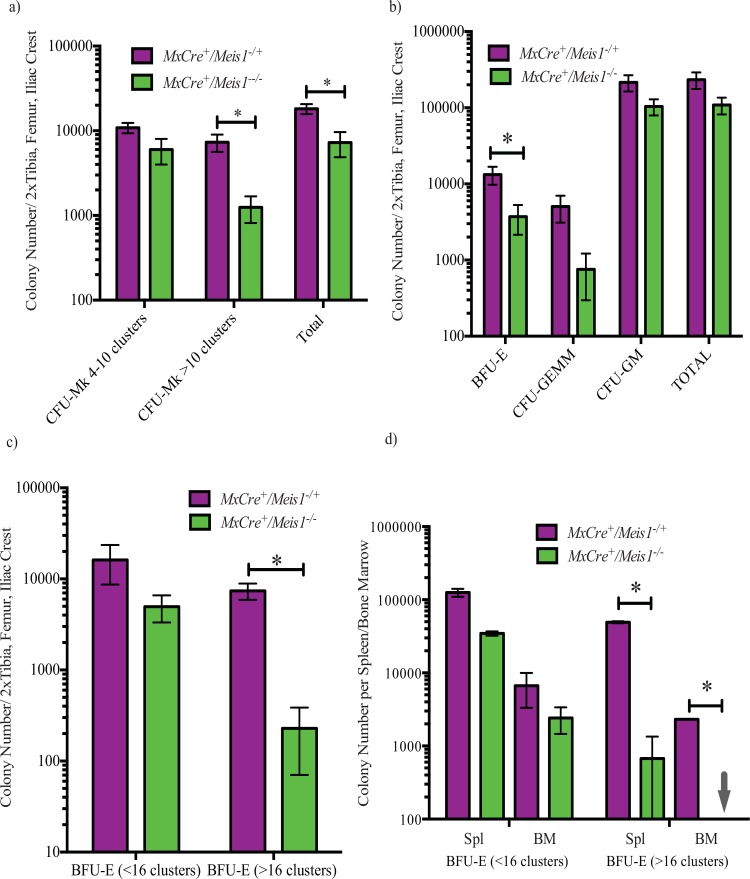Fig 6. Colony forming cell (CFC) capacity is selectively reduced in the absence of Meis1.
a) CFU-megakaryocytic (CFU-Mk) collagen cultures demonstrate deficiency in the ability of MxCre/Meis1-/- BM to generate CFU-Mk (p = 0.007, n = 7), most notably a 9-fold reduction in large CFU-Mk composed of >10 clusters per colony (p = 0.01, n = 7). b) BM from MxCre/Meis1-/- mice (n = 7) had a 4-fold reduced number of burst-forming erythroid (BFU-E, p = 0.04) and a 7-fold reduced number of CFU-granulocyte-erythrocyte-monocyte-megakaryocyte capacity (CFU-GEMM, p = 0.05). c) BFU-E impairment in MxCre/Meis1-/- BM is further demonstrated in erythroid-specific methylcellulose media. MxCre/Meis1-/- marrow had 32-fold fewer BFU-E with a potential of >16 clusters per colony (p = 0.003, n = 7). For both CFC and BFU-E assays, mice were euthanized and cells plated 5 days after the final PolyI:C injection. d) Phenylhydrazine treated MxCre/Meis1-/- spleen cells have a 73-fold reduced ability to form large (>16 clusters/colony) BFU-E (p = 0.006, n = 3) compared to MxCre/Meis1-/+. BM showed a >2000-fold reduction in both small and large BFU-E colonies (p = 0.002, n = 3). Mice were euthanized 4 days after the phenylhydrazine and thus 6 days following the final PolyI:C injection in two replicate experiments.

